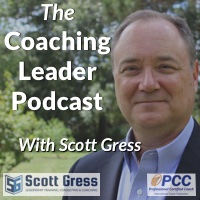
Christian leaders wear a lot of hats in leadership, especially pastors. There’s a lot that determines how one “shows up.” By that we mean one’s demeanor, what and how you say things, how you carry yourself, where you sit or stand, how you interact, when and even if you arrive including what you wear. Sure, it is often dependent upon what is expected from your defined roles or responsibilities. Yet there may also be assumptions people place on us in those roles that may not always be true or right.
Sometimes expectations are pretty clear. For pastors, especially on Sunday they are preacher and teacher. When making hospital or shut in calls they are care-giver or shepherd.
How a Pastor Shows Up Can be a Problem
Yet at other times it can be pretty ambiguous. How should one “show up” at a church meeting like the church council or Board of Director’s meeting, especially if you are not the chairperson of the committee? Where do you sit? What if you are late? What and how much do you say? Just the opening prayer? Do you bite your lip and say nothing when there is an issue? Do you speak up? How much? Too much might feel like a power play! Do you use the pastoral office as a club? Or do you just decide that as the pastor, you had better not say anything because you will “pay a price” later on? After all, if they get upset at you because of what you say or what you favor, they may not come back to church!
What about a voter’s meeting? Do you sit up front with the officers? Or do you stand in the back as if you have no role and nothing to say? Do you sit with a particular person or persons who are known to hold a particular position? Do you just say the prayer and then leave? If you get asked a question (because pastors are usually on site and get involved in things) then what do you say? Now you are involved in the discussion. Do you add to it? (Your voice is important, isn’t it?) Do you make faces? Do put your hands on your hips and make loud sighs when you don’t get your way?
It gets complicated. How you should “show up” is not so easy is it?
There seem to be a lot of gray areas. They are the spiritual leader of the church, yet what about other leadership? What about leading the congregation? Well, yes, but not really. There’s the voter’s assembly in our Lutheran churches that have the last say, but then there’s also the congregational president. How are pastors supposed to share or navigate that? The church constitutions don’t really help either.
Three Ways Pastors Typically Have Shown Up
Pastors have historically dealt with these ambiguities in one of two ways. The first is seen in pastors who are “type A” personalities or those who have more controlling and broad view of the pastoral office. They see themselves as the default boss in control whose office and tenure gives them the last word. In their mind (and their supporters) they think that what they say serves as the “trump card” to anyone else’s opinion. So they practically co-chair every meeting and can step in and take control at any time. They might be really nice about it. So they see themselves as the “benevolent dictator” but it doesn’t always come off that way. Instead some might perceive them to be a bit of a bully or insecure and may leave other people bruised along the way.
The second way pastors have historically dealt with this dilemma is to see themselves as the “spiritual shepherd” only. They want to appear humble and be the servant. They preach and teach, offer the devotions and prayers but step back so the lay people can do the work of the church. They rarely say anything. It feels safe. They feel sheltered from the consequences of bad decisions. They may appear to be or feel like the lap dog to the lay leadership. But they don’t know what else to do. So they default to a servant role because servant feels like Jesus. But in so doing they surrender their voice of leadership. They unconsciously teach the congregation that the pastor has a narrow role and that it does not influence direction or programming. The pastor can be “shouted down.”
Then thirdly, some kind of play the middle ground between the two, but it is equally frustrating. They carefully watch their words and “pick their battles.” But that is a perilous pathway where pastors make enemies whether they like it or not. They throw up their hands. They are trying their best. They say, “Oh well, that is the bane of the ministry.” Meanwhile they wear themselves out trying to live this balancing act. They may even end up resigning because it is too stressful to keep everyone happy.
So how else can a pastor show up? Is there a healthy alternative to the above unhealthy ways to show up?
A Different Alternative
How about showing up as a coach? There is absolutely a place for being the preacher, teacher, shepherd and prophet. But in those places where you are not the chairperson of the meeting, where you are not in charge and don’t want to take over or overstep someone else who is, then a coach is a perfect alternative.
A coach primarily asks questions, rather than propositional or declarative statements. This is because they want people to think through something themselves and own the insights and outcomes. In this way a pastor who shows up as a coach can lead by engaging the thinking of the group. A pastor as coach can unveil blind spots and point to God’s will and ways as revealed in the Bible.
For example. In a voters meeting where there is a struggle with wondering what to do. The pastor is not the tie breaking opinion. Rather the pastor can merely ask, “Which option more clearly fulfills God’s vision for ministry here?” Or, “Which option is most in keeping with our values?
Or “which is most Christ like?” or “Which one aligns best with our God given resources and gifts?” “What does the Bible say about (blank)?”
The pastor will want to be self aware and self manage the temptation to be manipulative with the questions. Then, there might be people who pressure the pastor to take a side or voice his opinion. But the wise pastor will show up as a coach. In this way, the pastor encourages lay engagement, lay leadership growth and capacity and ownership of the decision. It also unmistakably keeps the pastor in a role as advocate for the scriptures, God’s revealed will and the behavior of the sheep. Showing up in such a way will be hard to argue or criticize. The pastor was just sticking to his true role, helping the sheep to keep in step with the shepherd Jesus.
How do you show up? What is the outcome? What alternative outcome do you want? How should you show up for that alternative to happen?
If you want to know more about this kind of coaching, reach out to me. I’d be honored to talk about how you can show up in a healthy way.
Rev. Scott Gress is believes in Growing People for Ministry by focussing on leadership, discipleship and teamwork. Contact Scott if you are interested in him working with you or your church. A free 30 minutes sample session is available to explore how you might work best together. The Coaching Leader Podcast is also available on iTunes and his YouTube page. You can contact Scott through email scottgress@me.com or his blog page scottgress.com or at 561-542-4472
"Growing People for Ministry" Leadership + Discipleship + Teamwork
Check out the: Coaching Leader Podcast!

